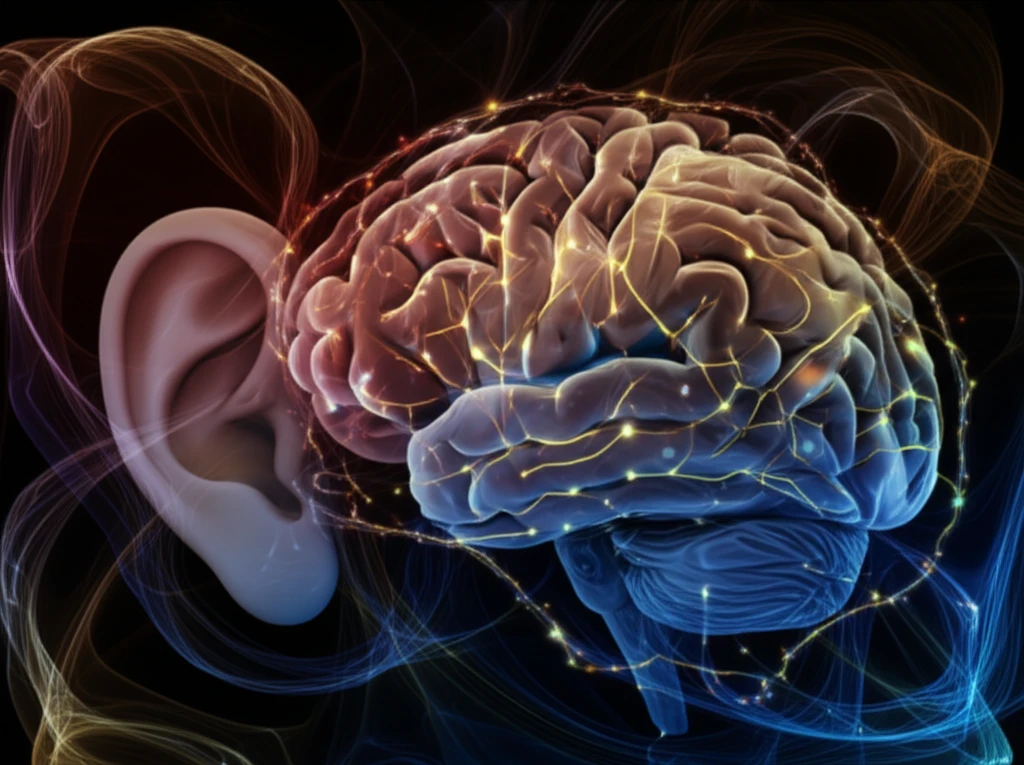
Can Hearing Loss Impact Your Brain? The Hidden Link Between Hearing and Cognitive Decline
"New research reveals how hearing impairment can accelerate cognitive decline, highlighting the importance of early detection and intervention."
Hearing loss is more than just a sensory issue; it's increasingly recognized as a potential risk factor for cognitive decline. While it's understood that hearing impairment can affect how well we process sound, emerging research suggests it can also impact our memory, executive functions, and overall mental state. This has significant implications, especially as we age and the prevalence of hearing loss increases.
Past studies have shown a correlation between hearing loss and declines in cognitive abilities. However, the exact nature of this relationship is complex. Is it simply that cognitive decline affects our ability to perform on hearing tests, or does hearing loss somehow contribute to cognitive impairment? Understanding this temporal sequence—what comes first and how the two influence each other—is critical.
This article explores the findings of a recent study, 'Temporal Sequence of Hearing Impairment and Cognition in the Baltimore Longitudinal Study of Aging,' which investigated how hearing and cognitive functions interact over time. The research sheds light on how hearing loss might predict cognitive decline, offering valuable insights for community-dwelling older adults and those concerned about maintaining cognitive health.
Decoding the Link: How Hearing Loss Affects Cognitive Performance

The Baltimore Longitudinal Study of Aging followed 313 non-demented participants aged 60 and older, assessing their hearing and cognitive functions over a two-year period. Hearing was evaluated using pure-tone audiometry (PTA), which measures the ability to hear different frequencies. Cognitive functions were assessed using a range of tests, including:
- Trail-Making Test Part B (TMT-B): Measures visual attention and task switching.
- Digit Symbol Substitution Test (DSST): Assesses processing speed and attention.
- California Verbal Learning Test (CVLT): Evaluates verbal memory and learning.
- Digit Span Forward/Backward: Tests working memory and attention.
- Benton Visual Retention Test: Assesses visual memory.
- Mini-Mental State Examination (MMSE): Screens for cognitive impairment.
Protecting Your Brain: What the Research Means for You
The findings of this study suggest that hearing loss can indeed contribute to cognitive decline, particularly in the realm of verbal memory. This underscores the importance of addressing hearing impairment early on, not just to improve auditory function but also to potentially protect cognitive health.
If you're experiencing hearing loss, consider getting a hearing aid. The study also highlights the importance of regular hearing checks, especially as you age. Early detection and intervention can make a significant difference in maintaining cognitive function.
By taking proactive steps to manage your hearing health, you can potentially reduce your risk of cognitive decline and maintain a sharper mind for longer. This research adds to the growing body of evidence that links hearing and cognitive health, reinforcing the need for a holistic approach to wellness as we age.
